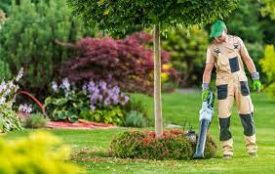Pest infestations can be a major problem for homeowners. Not only do pests damage property and pose health risks, but they can also be difficult and expensive to get rid of. That’s why prevention is key when it comes to keeping pests out of your home. In this article, we’ll provide some tips and tricks for pest prevention that can help you keep your home pest-free.
Seal Entry Points
One of the most effective ways to prevent pests from entering your home is to seal off entry points. This can include gaps and cracks in walls, windows, doors, and other openings. Pests can squeeze through even the tiniest openings, so it’s important to be thorough when sealing off entry points.
Use caulk or weather stripping to seal gaps and cracks in walls and windows. Install door sweeps on exterior doors to prevent pests from entering underneath. Check for gaps around pipes, vents, and cables and seal them off with wire mesh or foam insulation.
Keep Your Home Clean
Keeping your home clean is another effective way to prevent pests. Pests are attracted to food, water, and shelter, so eliminating these factors can help deter them from entering your home.
Make sure to clean up any spills or crumbs immediately. Store food in airtight containers and keep counters and floors clean. Empty trash cans frequently and make sure garbage is stored in sealed containers. Eliminate any sources of standing water, such as leaky faucets or water bowls for pets.
Trim Trees and Shrubs
Trees and shrubs that are too close to your home can provide a bridge for pests to enter. Trim back any branches that are touching your home or roof. This will not only help prevent pests from entering, but it will also reduce the risk of damage from falling branches.
Store Firewood Away from Your Home
Storing firewood next to your home can attract pests such as termites, ants, and rodents. Keep firewood stored away from your home, preferably on a raised platform or rack. This will help deter pests from nesting in the woodpile and prevent them from entering your home.
Fix Leaks and Moisture Problems
Pests are attracted to moisture, so fixing leaks and moisture problems is essential for pest prevention. Check for leaks around sinks, toilets, and appliances and fix them promptly. Use dehumidifiers in damp areas such as basements and crawl spaces. Make sure gutters and downspouts are clear and functioning properly to prevent water from accumulating near your home’s foundation.
Use Screens and Mesh
Using screens and mesh can help prevent pests from entering your home while still allowing for ventilation. Make sure all windows and doors have screens that are in good condition. Use mesh to cover vents and other openings that could provide a point of entry for pests.
Keep Your Yard Tidy
A well-maintained yard can help prevent pests from entering your home. Remove any debris, such as fallen leaves and branches, from your yard. Keep grass and other vegetation trimmed and tidy. Avoid overwatering plants and creating standing water, as this can attract pests.
Use Pest-Repelling Plants
Some plants have natural pest-repelling properties that can help keep pests at bay. Planting these types of plants around your home can help prevent pests from entering.
Some examples of pest-repelling plants include:
Marigolds: These plants contain a natural pesticide that can help repel a range of pests, including mosquitoes, aphids, and whiteflies.
Lavender: This plant has a strong scent that can help deter pests such as moths, fleas, and mosquitoes.
Mint: This plant has a strong scent that can help repel ants, mosquitoes, and flies.
Use Pest-Repelling Essential Oils
In addition to pest-repelling plants, essential oils can also help keep pests away. Some essential oils have natural insecticidal properties that can help repel pests. You can use these oils to create natural insect repellents, or simply diffuse them in your home to help deter pests.
Some examples of pest-repelling essential oils include:
Peppermint: This oil has a strong scent that can help repel ants, spiders, and mice.
Eucalyptus: This oil has a strong scent that can help repel mosquitoes and flies.
Lemon: This oil has a strong scent that can help repel fleas and mosquitoes.
Tea tree: This oil has natural insecticidal properties that can help repel a range of pests, including ants, cockroaches, and spiders.
Consider Professional Pest Control Services
If you have a persistent pest problem, or if you want to take extra precautions to prevent pests from entering your home, consider hiring a professional pest control service. A professional pest control company can provide a range of services, from inspection and identification to treatment and prevention.
Professional pest control services can be especially useful if you have a pest problem that is difficult to control, such as a termite infestation or a rodent problem. These companies have the expertise and equipment to identify and treat pests effectively.
In conclusion, preventing pests from entering your home is essential for maintaining a healthy and safe living environment. By following these tips and tricks for pest prevention, you can help keep pests at bay and reduce the risk of infestations. Remember to seal entry points, keep your home clean, trim trees and shrubs, store firewood away from your home, fix leaks and moisture problems, use screens and mesh, keep your yard tidy, use pest-repelling plants and essential oils, and consider professional pest control services if needed. With these measures in place, you can enjoy a pest-free home and peace of mind.

